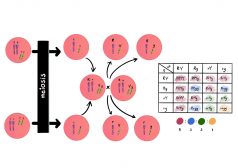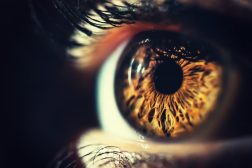Definition
noun
A form of inheritance that follows Mendel’s Law of Heredity
Supplement
Monogenic inheritance refers to the kind of inheritance whereby a trait is determined by the expression of a single gene or allele, not by several genes as in polygenic inheritance. It is a form of a Mendelian inheritance, which is defined as a type of biological inheritance that conforms to the set of principles proposed by Gregor Mendel. Gregor Mendel is an Augustinian monk and botanist who formulated the laws of heredity based on his careful breeding experiments on garden pea plants. He formulated laws regarding the transmission of genetic characters from parent organisms to their offspring based on breeding experiments on pea plants. These laws are now referred to as “Mendel’s laws of inheritance”, particularly the Law of Segregation, the Law of Independent Assortment, and the Law of Dominance. According to the Law of Segregation, the paired alleles separate during gamete formation. As a result, each gamete would contain a single copy of every paired unit factors. In the Law of Independent Assortment, it states that for every pair of unit factors, each would assort independently into the newly formed gametes. As for the Law of Dominance, in the two alleles of a heterozygous pair, the allele that is expressed is the dominant allele whereas the allele that is not expressed is the recessive allele. A monogenic disease or monogenic disorder would thus result when a single pair of genes is involved.
Synonym(s):
- Mendelian inheritance
- single gene inheritance
- qualitative inheritance
Compare:
See also:
- Mendel’s Law of Heredity
Related term(s):







